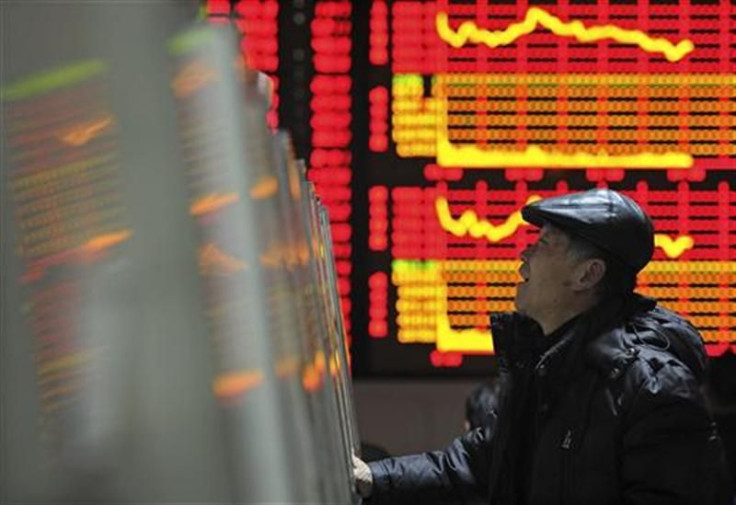Asian Stocks Gain But Weighed Down By Euro Zone Debt Concerns

Asian markets rose Wednesday but gains were weighed down as investors were worried about the debt crisis lingering over the euro zone.
Japan's Nikkei Stock Average rose 0.60 percent or 51.12 points to 8587.84. Among major gainers were Fast Retailing Co (1.7 percent), Nippon Paper Group (1.5 percent) and Hitachi Ltd (1.3 percent). South Korea's KOSPI rose 0.25 percent or 4.58 points to 1859.32.
India's BSE Sensex rose 0.36 percent or 60.92 points to 16923.72 amid hopes that the Reserve Bank of India would announce further monetary easing measures. Major gainers were Larsen & Toubro (1.6 percent), Sun Pharma (1.6 percent) and BHEL (1 percent).
The Chinese Shanghai composite index rose 1.27percent or 29.13 points to 2318.92. Hong Kong's Hang Seng rose 0.83 percent or 156.99 points to 19029.55. Major gainers were CNOOC Ltd (1.52 percent), BOC Hong Kong Holdings (1.36 percent) and HSBC Holdings Plc (0.85 percent).
Investor confidence is affected on fears that the euro zone is heading for recession and the economy would contract sharply if there is any form of euro breakup. Last weekend's bailout of the Spanish banking system appeared to have reduced tensions in global financial and asset markets, albeit temporarily.
However, investors are concerned that the agreement by the euro zone finance ministers to lend the bailout package to the Spanish banks would not be sufficient to take the country completely out of the economic crisis. The focus is also on Italy where the rising borrowing cost is becoming a major concern for investors.
Market players are noting that the debt crisis in Europe is badly affecting the global economy especially those countries heavily depending on the export industry. Investors worry that the risk is increasing in a vicious circle, involving high and rising sovereign indebtedness, weak banking systems, excessive fiscal consolidation and lower growth.
© Copyright IBTimes 2024. All rights reserved.











